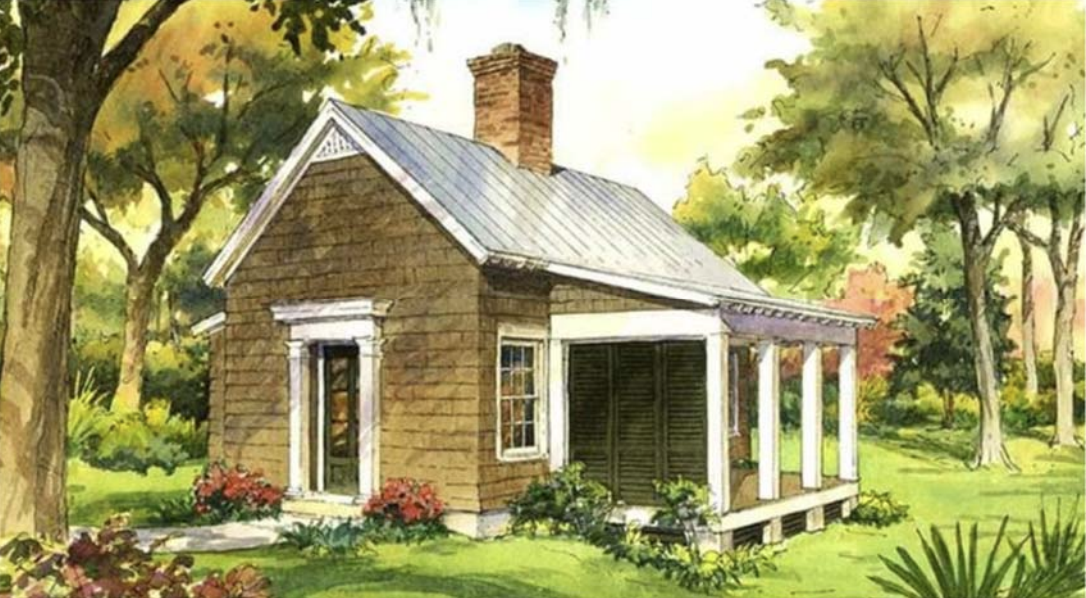Policy
Rural Georgia Court Strikes Down Minimum Home Size Rule
The Builder's Daily's RIchard Lawson reports on a first-of-its-kind Georgia ruling against minimum home size requirements. The ruling could spark a domino-effect model to ignite zoning reform nationwide.

Legal battles over residential zoning besiege big cities everywhere.
In Georgia, however, a recent court ruling in a small rural city could upend zoning regulations across the Peach State that limit the minimum size of homes that can be built.
What's more, that one obscure ruling could set off a cascading effect, serving as a lightning rod model for fighting such restrictions nationally.
A state judge in Calhoun, a city of about 20,000 in northwest Georgia, ruled on August 7 that the city’s zoning code, which set the minimum new home size at 1,150 square feet, violates the state’s constitution.
The ruling may be the first of its kind in Georgia—or anywhere in the U.S.
At first glance, the size limit may not seem onerous, especially considering that some minimums across Georgia reach as high as 2,400 square feet.
However, nonprofit Tiny Home Hand Up wanted to build even smaller. It had proposed affordable cottages ranging from 540 to 600 square feet on 7.9 acres of donated land, with a selling price of less than $95,000.

Citing its zoning code enacted in 2001, the city of Calhoun denied the “Cottages at King Corner” development. The nonprofit sued Calhoun in 2021, drawing national legal firepower: the Washington, D.C.-based Institute for Justice, a civil liberties organization, joined the case.
The Institute previously helped lobby Texas lawmakers on housing reform, including lowering minimum lot sizes.
Judge Walter Matthews ruled from the bench, but his written explanation is expected in the coming weeks. The city may still appeal. It previously tried to halt the lawsuit two years ago, but the Georgia Court of Appeals allowed the matter to proceed.
The ruling may not set a legal precedent that other judges must follow, but it could become a powerful tool for housing advocates seeking to reform zoning regulations.
It would be persuasive authority that other courts could rely on to help resolve similar cases, but not a precedent that they’d be required to follow,” Joe Gay, one of the Institute's lawyers who argued the case, tells The Builder's Daily.
Calhoun’s Housing Struggle
Calhoun might seem an unlikely site for a groundbreaking ruling. Located 70 miles north of Atlanta off Interstate 75—roughly halfway to Chattanooga—the city faces a housing affordability crisis, as countless other towns, cities, and metropolises across the country.
Despite being a noteworthy national center for floor covering manufacturing—home to Mohawk Industries and Shaw Industries—Calhoun remains relatively poor. According to the lawsuit, in 2019, when the nonprofit was planning its project, average incomes in the area fell below national averages, the poverty rate was double the national average, and homeownership was 36% lower than the national average.
Census data from 2023 shows homeownership at 52.5%, dramatically lower than Georgia’s rate of 66.1% and the national average of 65%. The city’s poverty rate is 18.7%, more than five percentage points higher than Georgia’s rate and 7.6 points higher than the national average.
Average home prices in Calhoun have climbed sharply since 2020, from roughly $187,000 to around $300,000.
The only purpose served by Calhoun’s ban on smaller homes is to abridge property owners’ right to decide what type of home they want to build and live in, unnecessarily inflate the cost of building a home, and impermissibly exclude hardworking residents who cannot afford larger homes,” the lawsuit argued.
Atlanta architect Eric Kronberg, who served as an expert witness for Tiny Home Hand Up, says he presented a pro forma analysis showing the cheapest house possible under the current code would cost $350,000—well above what most local residents can afford.
Nobody in your town can afford to buy this house, except maybe 10 people,” he says, recounting his testimony.
Snob Zoning
The fight in Calhoun echoes scores of broader battles across the U.S., not only as regards minimum house sizes, but also minimum lot sizes. Housing advocates are pushing to cut these requirements to boost the supply of starter homes.
In metro Atlanta alone, 31 municipalities have minimum house size requirements of at least 1,000 square feet in residential districts, according to a 2023 Georgia Public Policy Foundation study. Ten of these municipalities require homes to be at least 2,000 square feet.
Such minimums have been labeled “snob zoning”—government regulations that can exclude certain income classes and racial groups from neighborhoods.
The Calhoun lawsuit argues that the city’s ban on small homes denied Tiny Home Hand Up’s due process rights under the Georgia constitution, “because it does not bear a substantial relationship to the public health, safety, or general welfare.” That’s a critical point, given the powers of local governments.
At a 2021 public hearing on the zoning variance, opponents argued that a project aimed at lower-income people would bring “bad elements” and that smaller homes would lower property values. The council rejected the variance after public comments.
If you’re going to sue to overturn really bad zoning laws that have no justification in health, safety, and welfare, minimum house size is a straightforward one to target,” Kronberg says.
MORE IN Policy
Pulte Brings Homebuilder Know-How Inside Fannie Mae
Washington is tightening the link between federal housing finance and builder operations. Liquidity, land strategy, and affordability are now intertwined.
Grappling With State-Mandated Density, Sharp Local Pushback
Seattle is deep into a big push to reshape its housing landscape: Dismantling single-family zoning to comply with Washington’s 2023 law that legalizes middle housing. Richard Lawson examines how the One Seattle Plan could double capacity and create 120,000 new homes. But not without a fight.
Vacant To Vibrant: Baltimore’s $6B Housing Play To Revitalize
Baltimore launches a $1.2B redevelopment initiative—leveraging $5B private capital—to tackle vacant homes and rewrite zoning for “missing middle” housing.
